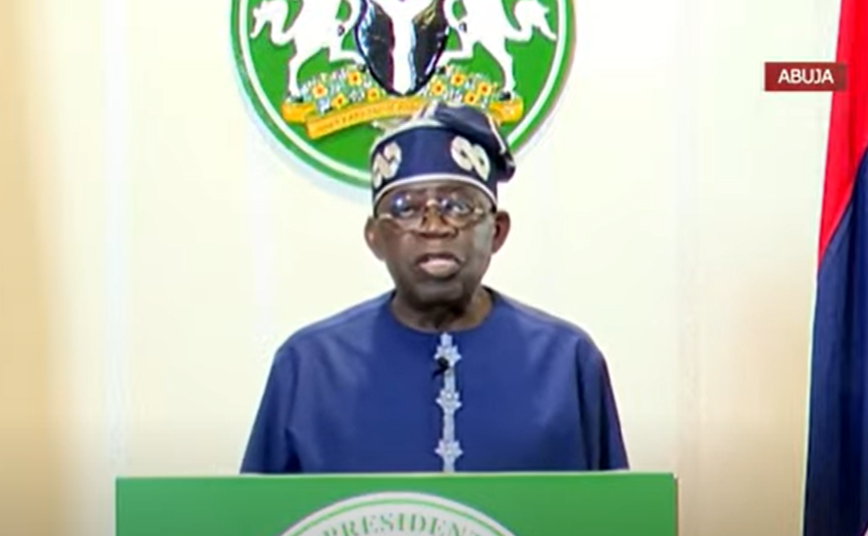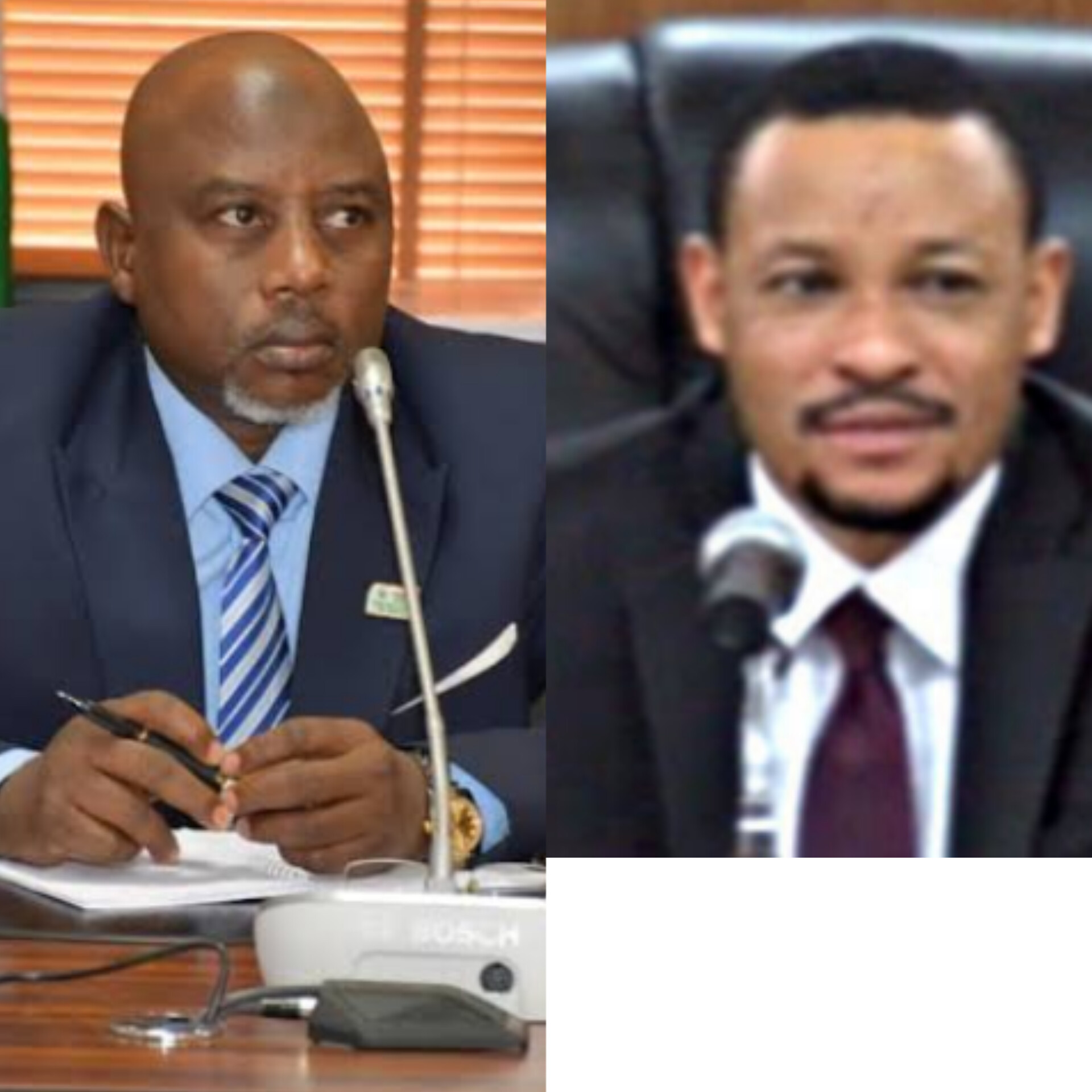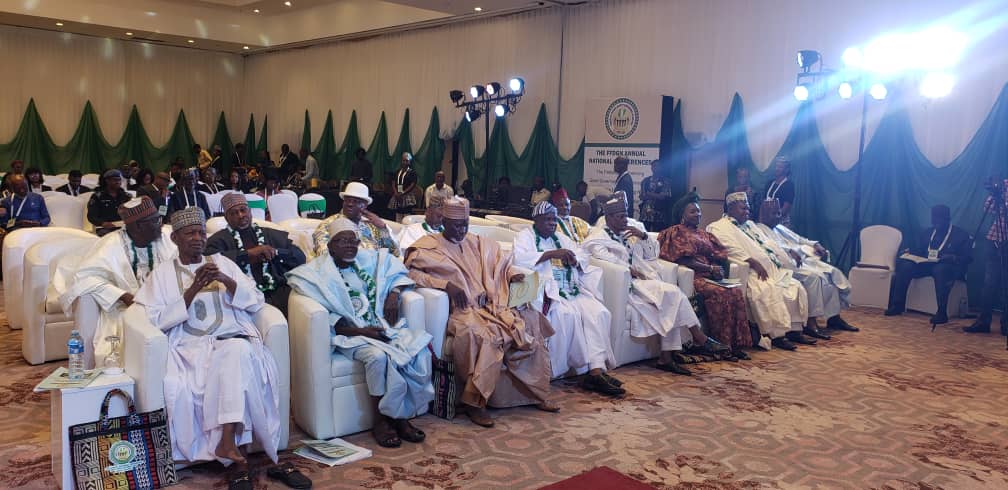TEXT OF NATIONAL BROADCAST BY PRESIDENT BOLA AHMED TINUBU ON THE 64TH INDEPENDENCE ANNIVERSARY OF THE FEDERAL REPUBLIC OF NIGERIA OCTOBER 1, 2024
Fellow Nigerians, as I address you today, I am deeply aware of the struggles many of you face in these challenging times. Our administration knows that many of you struggle with rising living costs and the search for meaningful employment. I want to assure you that your voices are heard.
As your President, I assure you that we are committed to finding sustainable solutions to alleviate the suffering of our citizens. Once again, I plead for your patience as the reforms we are implementing show positive signs, and we are beginning to see light at the end of the tunnel.
Exactly 64 years ago, our founding fathers chose democracy as a form of government and launched the dream of a great country that would lead the rest of Africa out of poverty, ignorance, and underdevelopment, a beacon of hope to the rest of Africa and the world.
Over six decades later, we can look back, and Nigerians worldwide can see how well we have succeeded in realising the lofty dreams of our founding fathers.
The world is witnessing and benefiting from the can-do spirit of the Nigerian people, our massive intellectual capacity, and our enterprise and industry in all vocations, from arts to science, technology to infrastructure. The dreams that our founding fathers envisaged are still a work in progress. Every day, we put our hands on the plough, determined to do a better job of it.
While it is tempting to focus on what has been left undone and where we have stumbled as a nation, we must never lose sight of how far we have come in forging and holding our country together.
Since independence, our nation has survived many crises and upheavals that led to the dissolution and disintegration of many other nations worldwide. Six years after independence, our country descended into a political crisis that led to a bitter and avoidable civil war. Since returning from the brink of that darkest moment, we have learned to embrace our diversity and manage our differences better as we continue to work towards engendering a more perfect union.
Despite the many challenges that buffeted our country, we remain a strong, united, and viable sovereign nation.
Dear compatriots, our independence anniversary gives us another chance to reflect on how far we have gone in our journey to nation-building and to renew our commitment to building a better nation that will serve present and future generations of Nigerians.
While we celebrate the progress we have made as a people in the last sixty-four years, we must also recognise some of our missed opportunities and mistakes of the past. If we are to become one of the greatest nations on earth, as God has destined us to be, our mistakes must not be allowed to follow us into the future.
My administration took over the leadership of our country 16 months ago at a critical juncture. The economy faced many headwinds, and our physical security was highly impaired. We found ourselves at a dizzying crossroads, where we must choose between two paths: reform for progress and prosperity or carry on business-as-usual and collapse. We decided to reform our political economy and defence architecture.
On the security front, I am happy to announce to you, my compatriots, that our administration is winning the war on terror and banditry. Our target is to eliminate all the threats of Boko Haram, banditry, kidnapping for ransom, and the scourge of all forms of violent extremism. Within one year, our government has eliminated Boko Haram and bandit commanders faster than ever. As of the last count, over 300 Boko Haram and bandit commanders have been eliminated by our gallant troops in the Northeast, Northwest, and some other parts of the country.
We have restored peace to hundreds of communities in the North, and thousands of our people have been able to return home. It is an unfinished business, which our security agencies are committed to ending as quickly as possible. As soon as we can restore peace to many communities in the troubled parts of the North, our farmers can return to their farms. We expect to see a leap in food production and a downward spiral in food costs. I promise you, we shall not falter on this.
Our government has been responding to the recent natural disasters, particularly the flooding in parts of the country. After Vice President Kashim Shettima visited Maiduguri, I also visited to assure our people that this federal government will always stand with our people in their times of trouble. At the last meeting of the Federal Executive Council, we approved a Disaster Relief Fund to mobilise private and public sector funds to help us respond faster to emergencies.
Our government has also ordered integrity tests of all our dams in the country to avert future disasters.
The economy is undergoing the necessary reforms and retooling to serve us better and more sustainably. If we do not correct the fiscal misalignments that led to the current economic downturn, our country will face an uncertain future and the peril of unimaginable consequences.
Thanks to the reforms, our country attracted foreign direct investments worth more than $30 billion in the last year.
Fellow compatriots, our administration is committed to free enterprise, free entry, and free exit in investments while maintaining the sanctity and efficacy of our regulatory processes. This principle guides the divestment transactions in our upstream petroleum sector, where we are committed to changing the fortune positively. As such, the ExxonMobil Seplat divestment will receive ministerial approval in a matter of days, having been concluded by the regulator, NUPRC, in line with the Petroleum Industry Act, PIA. This was done in the same manner as other qualified divestments approved in the sector.
The move will create vibrancy and increase oil and gas production, positively impacting our economy.
The more disciplined approach adopted by the Central Bank to monetary policy management has ensured stability and predictability in our foreign exchange market. We inherited a reserve of over $33 billion 16 months ago. Since then, we have paid back the inherited forex backlog of $7 billion. We have cleared the ways and means debt of over N30 trillion. We have reduced the debt service ratio from 97 per cent to 68 per cent. Despite all these, we have managed to keep our foreign reserve at $37 billion. We continue to meet all our obligations and pay our bills.
We are moving ahead with our fiscal policy reforms. To stimulate our productive capacity and create more jobs and prosperity, the Federal Executive Council approved the Economic Stabilisation Bills, which will now be transmitted to the National Assembly. These transformative bills will make our business environment more friendly, stimulate investment and reduce the tax burden on businesses and workers once they are passed into law.
As part of our efforts to re-engineer our political economy, we are resolute in our determination to implement the Supreme Court judgment on the financial autonomy of local governments.
The central concern of our people today is the high cost of living, especially food costs. This concern is shared by many around the globe as prices and the cost of living continue to rise worldwide.
My fellow Nigerians, be assured that we are implementing many measures to reduce the cost of living here at home.
I commend the Governors particularly, in Kebbi, Niger, Jigawa, Kwara, Nasarawa, and the Southwest Governors that have embraced our agricultural production programme. I urge other states to join the Federal Government in investing in mechanised farming. We are playing our part by supplying fertilizer and making tractors and other farm equipment available. Last week, the Federal Executive Council approved establishing a local assembly plant for 2000 John Deere tractors, combine harvesters, disc riders, bottom ploughs and other farm equipment. The plant has a completion time of six months.
Our energy transition programme is on course. We are expanding the adoption of the Presidential Initiative on Compressed Natural Gas for mass transit with private sector players. The Federal Government is ready to assist the thirty-six States and FCT in acquiring CNG buses for cheaper public transportation.
Fellow Nigerians, while we are working to stabilise the economy and secure the country, we also seek to foster national unity and build social harmony and cohesion. Our economy can only thrive when there is peace.
As we work to overcome the challenges of the day, we remain mindful of the next generation as we seek to galvanize their creative energy towards a better future. We lead today with the future we wish to bequeath to our children in focus, recognizing that we cannot design a future that belongs to them without making them its architects.
Considering this, I am pleased to announce the gathering of a National Youth Conference. This conference will be a platform to address the diverse challenges and opportunities confronting our young people, who constitute more than 60 per cent of our population. It will provoke meaningful dialogue and empower our young people to participate actively in nation-building. By ensuring that their voices are heard in shaping the policies that impact their lives, we are creating a pathway for a brighter tomorrow.
The 30-day Confab will unite young people nationwide to collaboratively develop solutions to issues such as education, employment, innovation, security, and social justice. The modalities of this Confab and selection of delegates will be designed in close consultation with our young people through their representatives. Through this confab, it will be our job as leaders to ensure that their aspirations are at the heart of the conference’s deliberations. The government will thoroughly consider and implement the recommendations and outcomes from this forum as we remain resolute in our mission to build a more inclusive, prosperous, and united Nigeria.
Our government is implementing several other youth-centric programmes to give our young people an advantage in the rapidly changing world. We are implementing, amongst others, the 3 million Technical Talents programme (3MTT) of the Ministry of Communications, Innovation and Digital Economy, aimed at building Nigeria’s technical talent backbone.
We have also enthusiastically implemented the Nigerian Education Loan Fund (NELFUND), which provides cheap loans to our students to pursue their tertiary educational dreams. In addition, later this month, we shall launch The Renewed Hope Labour Employment and Empowerment Programme (LEEP). It is conceived as a comprehensive suite of interventions at job creation by the Federal Ministry of Labour and Employment that is aimed at facilitating the creation of 2.5 million jobs, directly and indirectly, on an annual incremental basis whilst simultaneously ensuring the welfare and safety of workers across the country.
As is the tradition, the government will soon announce all the beneficiaries of our national honours for 2024.
The Senate President and the Chief Justice of the Federation have been conferred with the honour of the Grand Commander of the Order of the Niger (GCON). The deputy Senate President and Speaker of the House of Representatives have the honour of Commander of the Order of the Federal Republic (CFR), while the deputy speaker of the House has been awarded Commander of the Order of Niger (CON).
Fellow Nigerians, better days are ahead of us. The challenges of the moment must always make us believe in ourselves. We are Nigerians—resilient and tenacious. We always prevail and rise above our circumstances.
I urge you to believe in our nation’s promise. The road ahead may be challenging, but we will forge a path toward a brighter future with your support. Together, we will cultivate a Nigeria that reflects the aspirations of all its citizens, a nation that resonates with pride, dignity, and shared success.
As agents of change, we can shape our destiny and build a brighter future by ourselves, for ourselves and for future generations.
Please join our administration in this journey towards a brighter future. Let us work together to build a greater Nigeria where every citizen can access opportunities and every child can grow up with hope and promise.
May God continue to bless our nation and keep members of our armed forces safe.
Happy Independence anniversary, my fellow Nigerians!

President Bola Ahmed Tinubu



